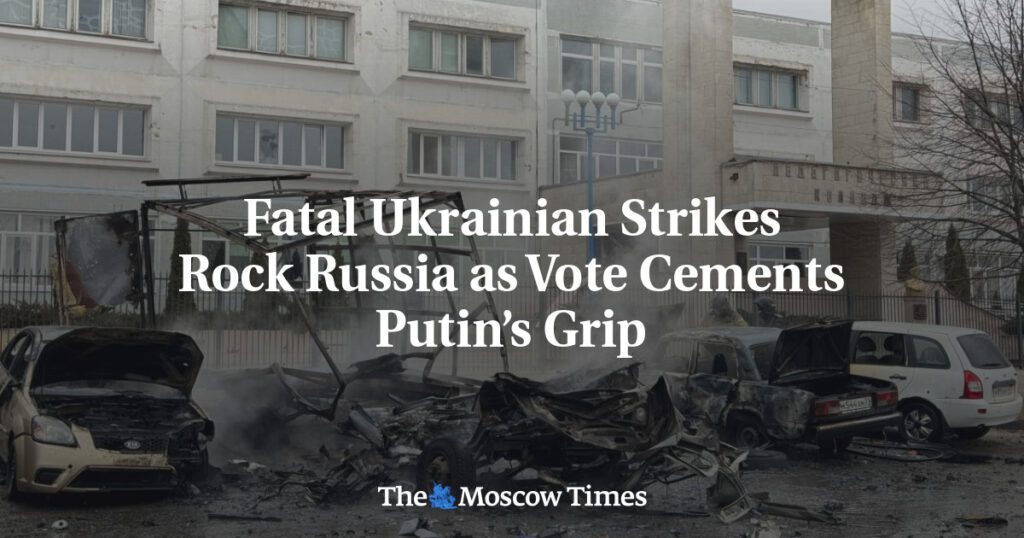In a separate post, Gladkov announced that some schools and shopping centers in the city of Belgorod and surrounding areas will be temporarily closed for the next few days for the second time this month.
Russia’s Ministry of Defense earlier said it shot down rockets, missiles and drones in the Belgorod-Kursk region border region, which has seen an increase in deadly attacks in recent weeks.
Putin vows revenge
The ministry later announced that Russian forces had repelled further infiltration attempts by “Ukrainian extremist sabotage and reconnaissance groups.”
Meanwhile, a representative Kremlin official in the occupied Kherson region of southern Ukraine announced that one person was killed and four others were injured in the drone attack.
The border attack was a concern for voters in the town of Sergiev Posad, hundreds of kilometers away, on the outskirts of Moscow. The town is famous for its ornate Orthodox monasteries with golden onion domes.
Inessa Roshkova, 87, said she hoped her vote would end the conflict with Ukraine, voting from her home with the help of election officials who go door-to-door to collect votes from elderly people. Stated.
“Can you imagine how many people have died? And now our border villages are suffering. We are worried about them,” she said.
Elena Kirsanova, 68, came with her husband to vote for Mr. Putin at a nearby polling station inside a vocational school.
“They are trying to scare us, but this is not a country that can be threatened,” Kirsanova told AFP.
The 71-year-old has been at the helm of Russia since late 1999 and plans to extend his control over the country until 2030.
If he completes another term in the Kremlin, he will remain in power longer than any Russian leader since Catherine II in the 18th century.
He shut out two candidates who opposed the Ukraine conflict and nearly a month after his main opponent, Alexei Navalny, died of unknown causes in an Arctic prison. Does not face voting competition.
The Kremlin has pitched the election as an opportunity for Russians to demonstrate their support for a full-scale Russian military operation in Ukraine, with voting taking place in occupied territories.
But Friday’s first day of voting was marred by vandalism at polling stations, with arrests of Russian nationals suspected of pouring dye into ballot boxes and setting them on fire.
Oil facility fire
At least two other Russians, one in the central city of Yekaterinburg and one in the western enclave of Kaliningrad, have been accused by authorities of smearing green ink on ballots.
The substance poured into the ballot box is Zelyonkaa surgical disinfectant previously used by pro-Kremlin officials to shower opposition politicians, including Mr. Navalny.
Meanwhile, the ruling United Russia party, which staunchly supports President Putin, announced that its website had suffered a major hacking attack.
The FSB security service also announced a series of arrests of Russians supporting the Ukrainian military or planning sabotage at military and transport facilities as the polls began.
Ukraine’s attacks on Russia extend far beyond its border areas, with Kiev forces targeting oil facilities deep in Russian territory in recent weeks.
The governor of the Samara region, about 800 kilometers (500 miles) from the front lines, announced on Saturday that Ukrainian drones had targeted two oil refineries, causing a fire at one of them.
A defense source in Kiev told AFP that the attack was planned by SBU security forces as part of a “strategy to disrupt Russia’s economic potential.”
“Each such defeat reduces the flow of oil money that supports Russia’s war economy,” the official said.

